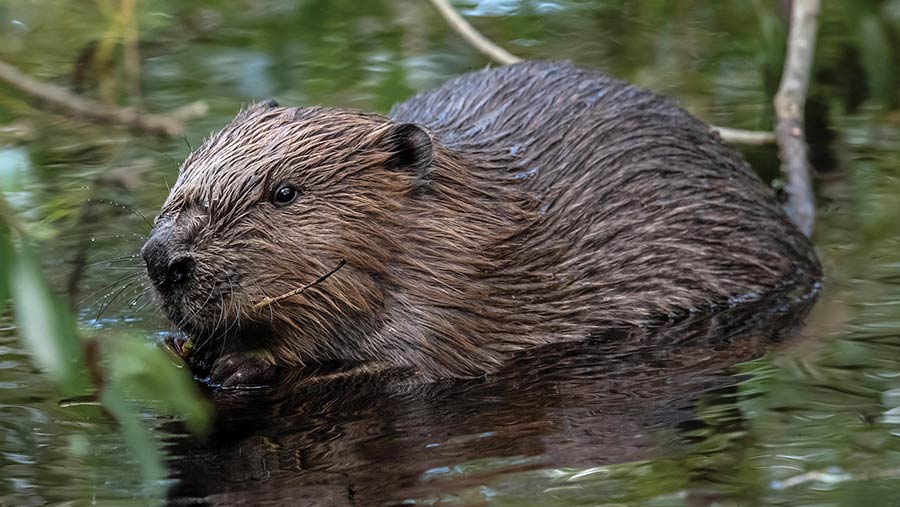Opinion: Farming’s voice matters when it comes to beaver releases
 © Abi Warner Photography/Alamy Stock Photo
© Abi Warner Photography/Alamy Stock Photo We talk about needing more balance – in our diets, in our approach to farm management, and in our land use.
But we also need more balance to the reintroduction of species, most particularly beavers.
Given their perceived environmental benefits and their fluffy cartoon appearance, one might expect they would be universally well received and uncontentious.
See also: Guidance on wild release of beavers in England sparks debate
About the author

Robyn Munt is an independent consultant specialising in farm schemes and rural businesses, based on the Isle of Wight.
She sets out the case for a better framework to deal with a fast-growing beaver population.
But nothing that can create landscape change does so without potential conflict.
The question is, can enough pain be balanced by enough gain?
The trouble with beavers is that they affect different parties in different ways.
Evidence from the River Otter beaver trial in Devon demonstrated many benefits, including reduced flooding, water filtration and the creation of wetland habitat – great things that are appreciated both locally and nationally.
But they don’t directly benefit a farmer’s business and instead often cause the loss or degradation of land.
In the same River Otter catchment, prime arable land was degraded to permanent pasture through waterlogging and blocked land drains, and there was a noticeable loss of grazing pastures.
These industrious creatures can have a swift effect, and the farmer now faces the onerous task of ongoing monitoring and managing beavers to keep them in check. The scales don’t seem to be sitting quite right…
Productive loss
All this public benefit should sit well with government proposals for “public money for public goods”, but where is it?
Countryside Stewardship options can be jammed in to offset productive loss, and contribute towards capital costs for fencing and tree guards.
However, the stewardship options are relatively short term compared with the effect beavers can have, while monitoring and management is increased under such schemes.
It is true that some land managers living with beavers have been able to balance their own scales.
For example, an agricultural college might be prepared to tolerate land loss when beavers raise water levels if this can be offset by offering students experience in managing species impact.
Or the 25,000ha estate may be prepared to suffer land loss in given areas for conservation benefit, so long as it does not compromise it’s in-hand farm practices.
But how does that compare with your average farmer? How replicable are these situations? And what of private finance to reward natural capital creation and ecosystem services, for example?
This is most likely where the real opportunities for recompense are, but the frameworks are not in place and the results are difficult to quantify.
So, if your neighbour is prepared to tolerate beavers, you may suffer the consequences, without access to the opportunities.
‘When, not if’
Across the UK, regardless of the current block on licences, wild beaver populations are thriving.
So it is a case of “when” a catchment will see beavers, not “if”.
While the public and private systems try to catch up with the effect of beavers, there will be an ongoing and increasing cost to landowners, farmers, transport networks, local councils… the list goes on.
There could be opportunities, but realistically they need to be at catchment scale to benefit everyone, and they need to be centrally administered to allow accessible and fair compensation to all.
As beavers expand their territories across Britain, the government needs to get ahead of this if it wants to see them socially accepted because, while there are benefits for the many, the burden sits on the few.
There is no balance in that.
